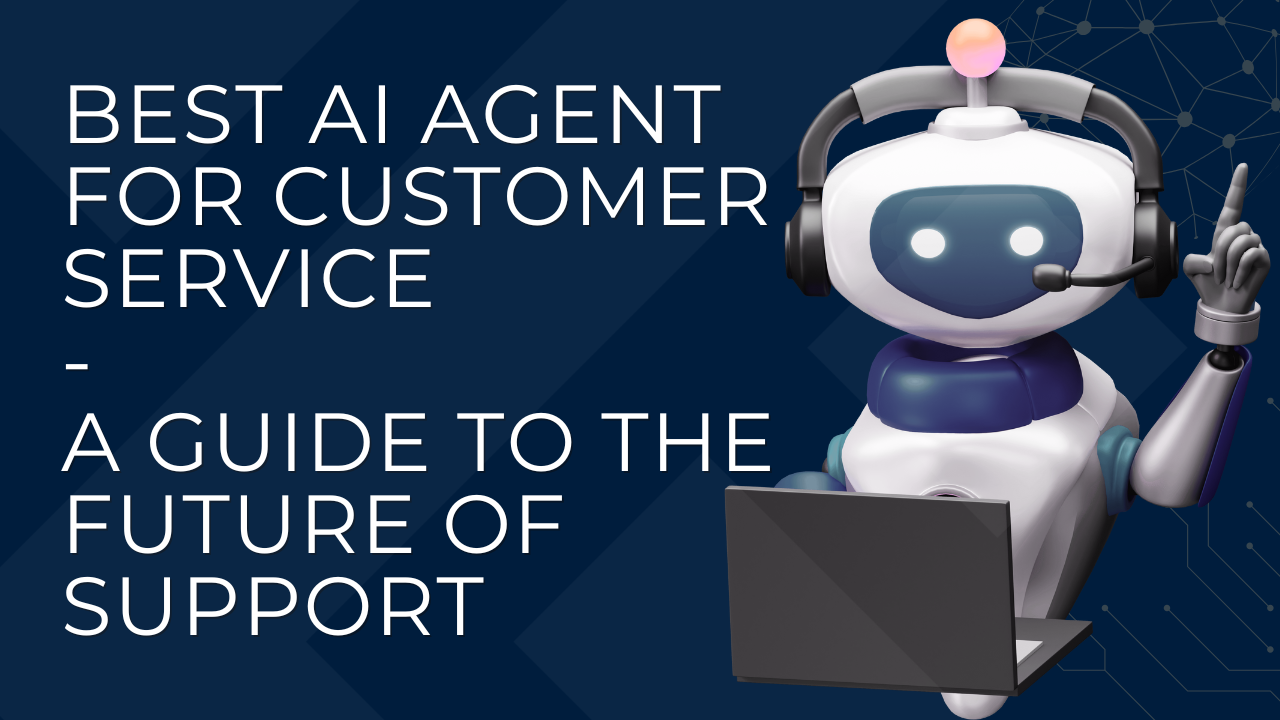Explore the types of AI agents, their key components, and discover the best AI agent solutions to revolutionize your customer service.

As an SEO writing and AI expert, I've seen firsthand how quickly technology evolves. Businesses today are looking for more than just software; they're looking for intelligent solutions that can act autonomously and deliver real value. At the heart of this shift are AI agents—a revolutionary technology that's changing how we work, interact, and manage our digital world.
This article is your comprehensive guide to understanding AI agents, with a specific focus on finding the best AI agent for customer service. We'll demystify the core concepts, explore the different types of agents, and give you the knowledge you need to make an informed decision for your business.
An AI agent is an intelligent entity that perceives its environment and takes actions to achieve a specific goal. Think of it as a smart, autonomous piece of software designed to handle tasks that typically require human intelligence. Unlike a simple program that follows a rigid set of rules, an AI agent can learn, adapt, and make decisions in real-time.
For example, a basic chatbot might only be able to answer questions from a pre-defined script. An AI agent, however, can understand the context of a customer's query, search for the best solution across multiple databases, and even escalate the issue to a human agent when necessary—all without a single line of pre-written code for that specific scenario.
To understand how an AI agent operates, it helps to break it down into its core components. These three parts are what allow an agent to function intelligently.
Perception.This is the agent's ability to observe its environment. For a customer service agent, this could mean perceiving a customer's text query, their emotional tone from voice data, or their browsing history on your website.
Reasoning. Once an agent has perceived its environment, it needs to think. Reasoning is the agent's ability to process that information and make a decision. It analyzes the perceived data to determine the best course of action to achieve its goal.
Action. This is the final step where the agent executes a decision. In customer service, this might involve sending a pre-written response, providing a link to a help article, or initiating a refund process.
AI agents are not all created equal. They exist on a spectrum of complexity, from simple systems that react to immediate input to highly advanced, autonomous entities. Understanding the types helps you choose the right tool for the job.
For businesses undergoing a digital transformation, AI agents are not a luxury—they are a necessity. Here's why they are so vital for customer service:
When choosing an AI agent for your business, you'll likely want to find a solution that combines a variety of the agent types mentioned earlier. The best AI agent for customer service will have elements of a goal-based agent (to solve a problem) and a utility-based agent (to do so efficiently). Here are some of the best AI agents for various customer service tasks.

Important Consideration. The best AI agent for customer service is rarely a standalone product. It's often a platform that integrates with your existing tools, allowing for seamless data flow and a unified view of the customer.
Look for platforms with strong API integration, robust analytics, and a proven track record in your industry and this is where Keyspecs comes in. Reach out and let's help you transition into the digital dispensation.
AI agents are transforming industries and everyday life, and customer service is at the forefront of this revolution. As these agents become more sophisticated, they will move from simple task execution to more predictive and proactive roles. We'll see agents that can anticipate a customer's needs before they even arise, offering a level of service that was previously unimaginable.
Image Credits: Thumbnail by Alex Knight